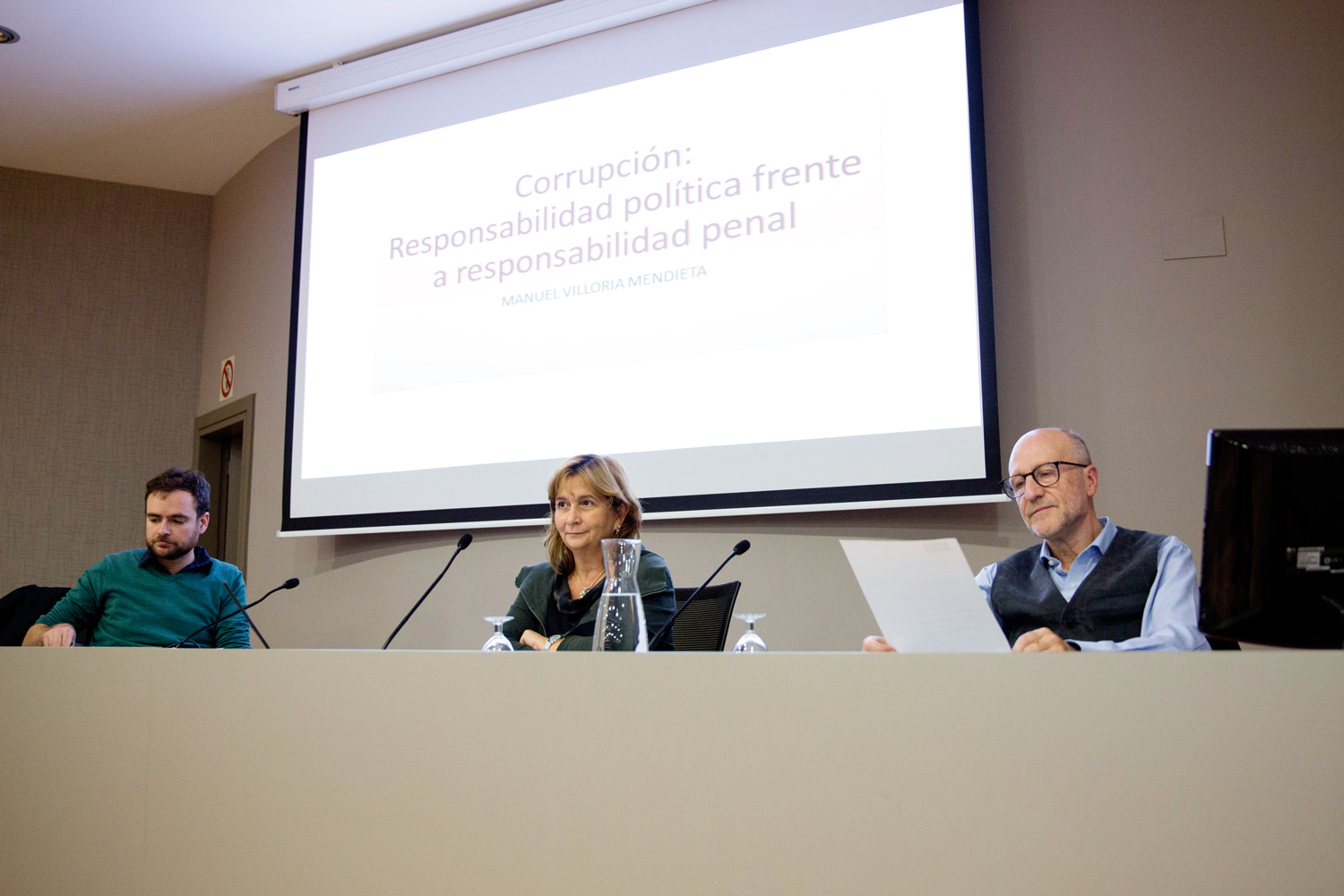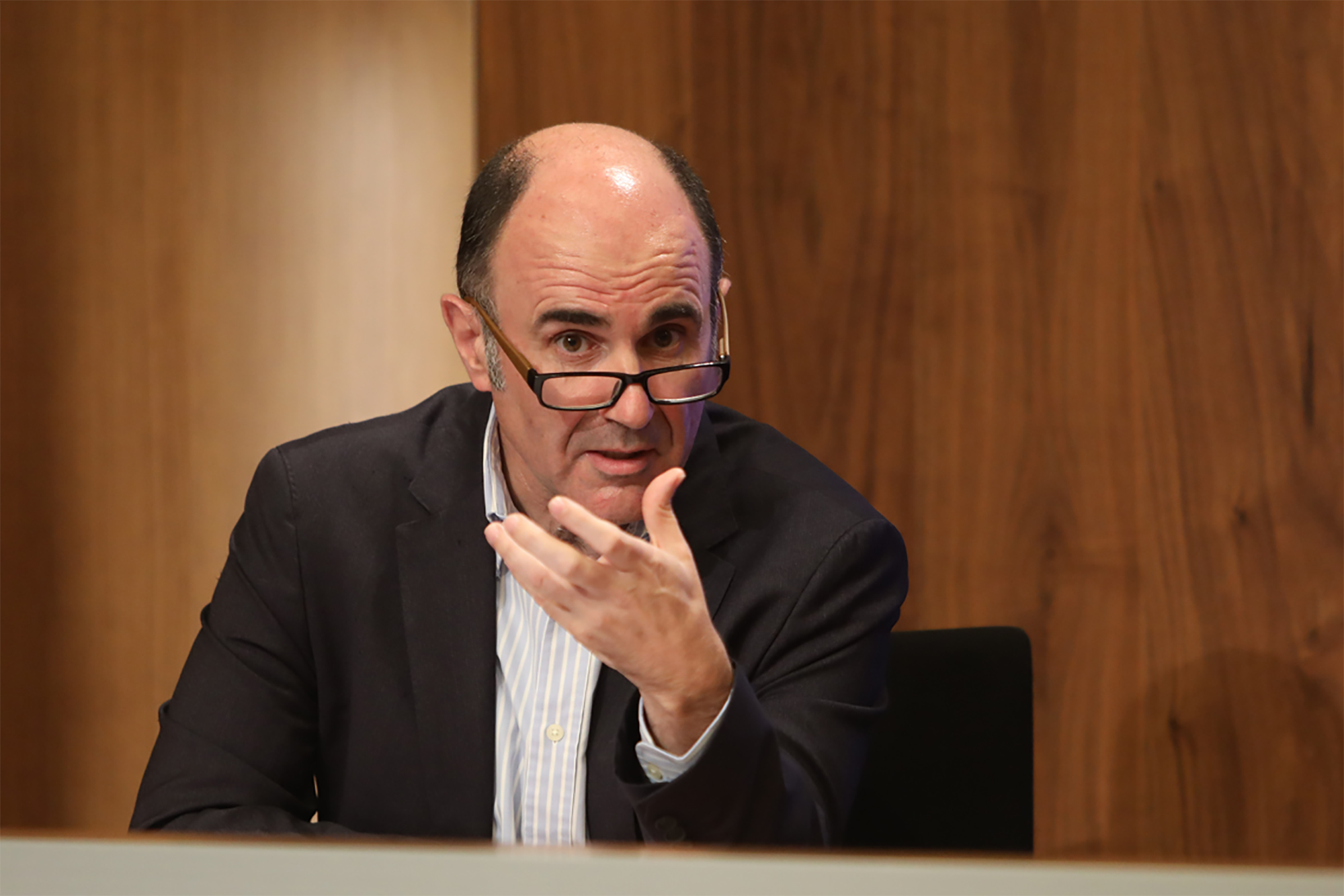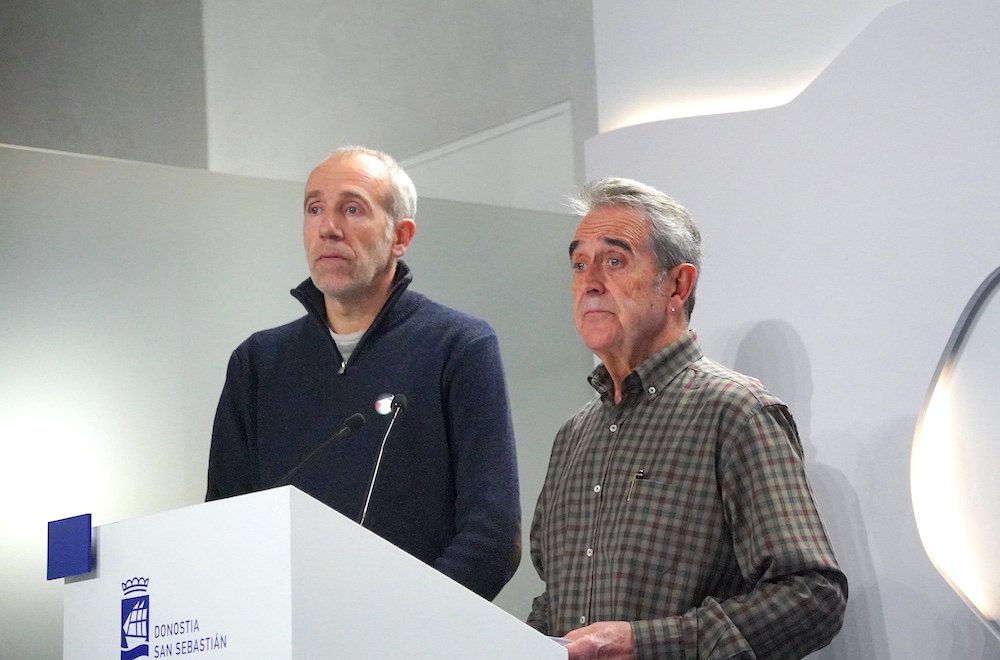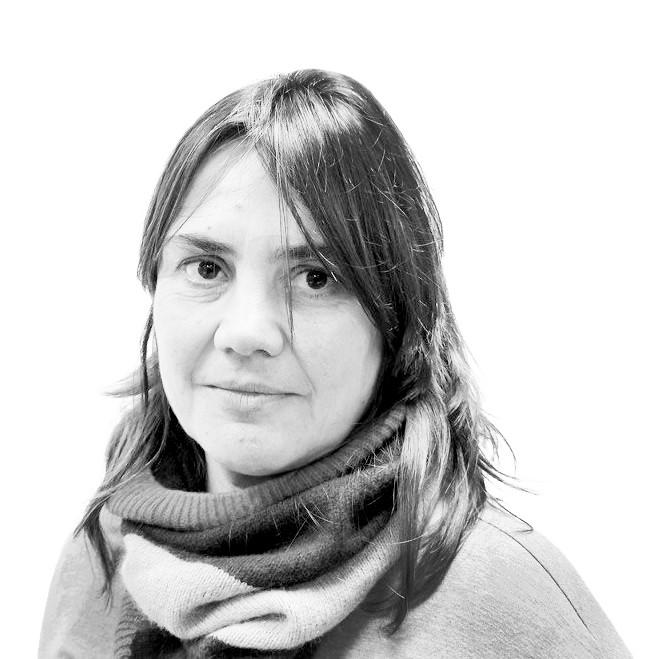The party system smells rotten
- The ADI in Vitoria-Gasteiz referred to corruption in political institutions and parties. The latest conferences of the days against corruption organized by the association. On October 30, at the European Congress House, the rapporteurs were the experts of the Manuel Villoria University and Manuel Maroto, and the Inés Olaizola Professor of Criminal Law conducted the session. The session showed that corruption is structural and that putting an end to it is a matter of will. Also, only citizen pressure can change the situation.

Manuel Villoria Mendieta is Professor of Political Sciences and Administration. He runs the Good Governance Observatory of the Rey Juan Carlos University of Madrid and is a member of the organization Transparency International.
Corruption, perception and governance
“How much corruption is there in Spain?” asked Villoria. He tried to answer the question with judicial data: In the last six months of 2015, more than 700 people were charged with corruption in the courts of the Kingdom of Spain, compared to 52 in the first half of 2019. “We seem to be succeeding in the fight against corruption,” he concluded. However, the number of people who believe that corruption is widespread in the last decade has increased considerably, as demonstrated by different studies.
“What does perception matter if objective data is good?” Villoria continued to reflect. Perception has consequences in the area of the “legitimacy and governance” of the democratic system and, consequently, affects “social and political life”. The percentage of Spaniards who trusted political parties in 2006 was 31%, compared with 8% in 2018. In Parliament, 41% of the population had confidence in 2006, compared to 14% in 2018. In Villoria’s words, the high perception of corruption – and supposedly false – and the delegitimization of the democratic system go hand in hand.
Villoria’s expolio was based on a weak point: it served as the main measure of corruption and as “objective” the number of persons charged in the courts. But the judiciary is far from being sovereign of the political power. Did the fact that so many people were accused in 2015 respond to a good fight against corruption? Or, on the contrary, was the only thing he intended to restore credibility to the democratic system that was in a crisis of obvious credibility? It is precisely in 2015 that the Spanish Congress approved an ambitious project of “democratic regeneration” which, among other things, sought to combat corruption. According to data provided by Villoria, the lack of legitimacy of the system in 2015 is very similar to what currently exists. But there's a remarkable difference. The crisis of legitimacy that erupted in 2011 resulted in transformative active attitudes; the current one is passive – if not reactive –.
The Corrupt Birth of Corrupt Parties
The day was closed with a guest with a seductive last name to talk about corruption in Vitoria-Gasteiz: Manuel Maroto Calatayud is a professor of criminal law at the Complutense University of Madrid (Spain). Olaizola II presented it as the “great expert” that exists around the illegal financing of Spanish political parties. Although he voiced with a soft and restless voice, he let the party system vibrate.
Maroto stated that the lack of legitimacy of the political system is large, attributing the greatest responsibility to political parties. “Parties have always failed” to create such legitimacy, and its most important causes highlighted its form of funding.
Maroto placed the original sin of corruption in funding and at the very time of its birth. Most of the “spontaneous” aspects emerged during the Transition, with little social basis. There is no possibility, therefore, of financing through the quotas of regular militants in Europe. What sources did the parties use to get money?
One, the foreigner – who was and is illegal –: Maroto reminded, by way of example, that the PSOE or the PA received money from several German foundations during the transition. Secondly, public subsidies: at present, 85-90% of declared revenue is of public origin. Maroto doubted his convenience. It can serve to avoid subordination to private interests. But it also assumes that “the party is independent of its bases”, harming democracy interna.En third place, bank loans: By the 1980s parties were heavily indebted. The UCD was dissolved for not being able to deal with debts, the PSOE organised the corruption network Filesa to deal with debts – it is more common for banks to forgive debts to parties.
Invenenta lege, invents fraud
These sources of funding, according to Maroto, remain in force during the EU’s transitional period. The problems have been identified since the Transition, but the changes to address them have become “bad and irresistible”. In the early years there was a lack of regulation, a “wild time of financing”. The Party Financing Act dates from 1987, “totally inadequate and designed to prevent it from being implemented”. Despite the many scandals, no further action was planned until 2007. In the period 2007-2015, there was a “legislative explosion” around party corruption: "The economic crisis has to do with creating a crisis of legitimacy in the political system. For the first time since 78, the party system was
in danger.” The measures included those of 2015, as part of the aforementioned “democratic regeneration” project. Two were the main decisions. One, the ban on corporate donations: “By then the path of donations was completely minority, with no loss to the parties.” The other is a crime of illegal financing. But many practices are left out or undefined: “For example, to be a crime, you have to have a fraud of more than 500,000 euros, which hardly exists; or it is a crime that a company donates 100 euros to one party, but not 10 million euros to the foundation of the party.”
Citizenship as the only hope
“Laws have been made very difficult to enforce, while a message is being sent out of what it is doing. These measures are intentionally fraudulent.” Are there reasons for hope? “The good thing is that the things that need to change have been identified for a long time. The hard thing is to open up a political choice.” Policy options do not open up for themselves: As was done between 2011 and 2015, only the struggles of the citizens can be extended.
Geroa Baiko lehendakari eta Nafarroako lehendakariorde izandakoa enpresa bati 2,6 milioi euroko diru-laguntzak ustez modu irregularrean emateagatik zegoen auzipetuta, Davalor auzia deiturikoan. Nafarroako Probintzia Auzitegiak erabaki du auzia behin betiko artxibatzea, legalki... [+]
EUR 904 billion. This is the annual cost of corruption in the European Union, according to a study carried out in 2020. Between 2008 and 2020, 3,743 cases of corruption were published in the media, of which 109 corresponded to Hego Euskal Herria. Of course, we will find more... [+]

























